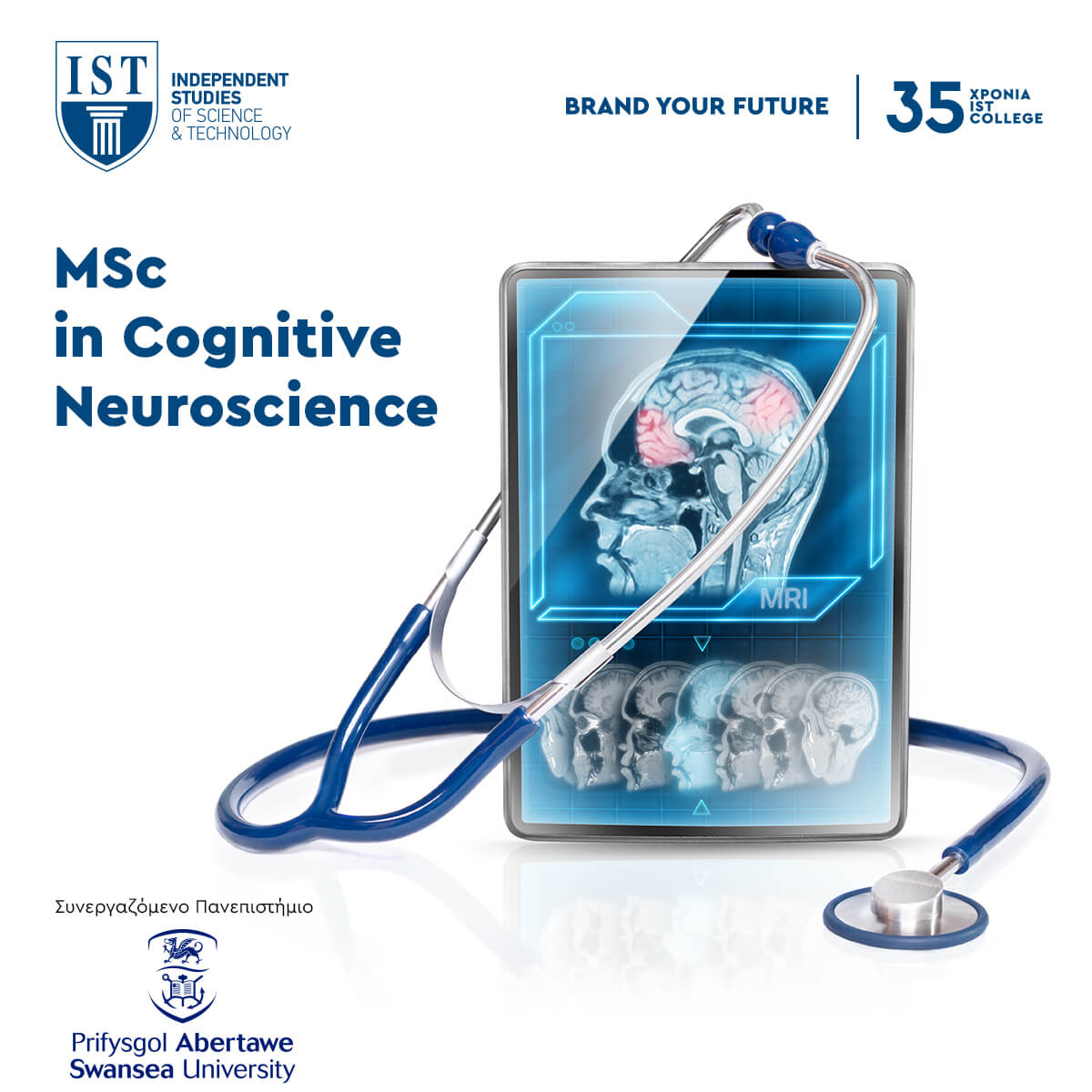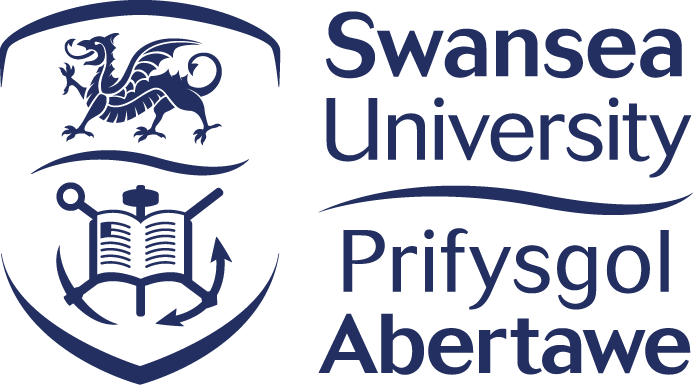
Duration
Full time-1 year
Μοde of Delivery
On site, Online
Language of Delivery
Greek
Start Date
October 2026
Location
Athens, Greece



Description
MSc in Cognitive Neuroscience was designed as a bridge between undergraduate studies and doctoral research in Cognitive Neuroscience, Experimental Psychology and Neuroimaging methods.
As graduate students, you will learn to design, analyse and evaluate neuroimaging experiments, which contribute to our understanding of the brain mechanisms that underpin aspects of cognition and behavior such as memory, attention, object recognition, cerebral neurodegeneration and injury. You will receive an in-depth training in Cognitive Neuroscience research, an introduction to Neuroimaging principles and hands-on experience in Structural and Functional Magnetic Resonance Imaging (sMRI and fMRI), Electroencephalography ( electroencephalography-EEG) and Transcranial Direct Current Stimulation (tDCS).
Psychology at Swansea University is ranked Top 201-250 in the World (QS World University Ranking by Subject 2025).
Objective of the programme
- You will receive a comprehensive and in-depth understanding of Cognitive Neuroscience, guided by academics and practitioners, specialized in the fields of research and clinical practice, including the fields of Clinical Psychology, Health Psychology, Neuropsychology, Neuroscience, Brain Injury, sleep, and Developmental Psychology.
- You will gain knowledge of current research practices and findings, as well as theoretical developments in the field of Neuroscience, while the wide range of modules will help tailor your studies to your particular interests and goals for further research and study.
- You will form your academic foundation for future doctoral level studies. Upon completion of the programme, you will be able to apply to any PhD programme related to Cognitive Neuroscience.
- You will have unique networking opportunities with industry professionals and alumni.
- You will receive a high-level education, while the opportunity to attend certified seminars and workshops alongside postgraduate studies and without additional financial burden is provided, thus building a strong CV and acquiring useful practical and research skills.
Why choose the “Cognitive Neuroscience” Master’s Programme?
The programme combines a research and clinical focus with comprehensive practical training.
Students can, within the framework of the programme:
-
take part in training in clinical neuropsychology,
-
actively engage in the use of tools for assessment, diagnosis, and rehabilitation (WAIS, RAVLT, ACE, SDMT, TMT, Stroop Test),
-
gain hands-on experience with techniques such as EEG, DCS, fMRI, and in the analysis of neuroimaging data,
-
practically apply what they learn in selected laboratories and diagnostic centers, depending on their interests.
A programme that combines pioneering knowledge, applied practice, and professional prospects!
Programme Structure
More information
You may also be interested in:
The Global MBA programme is designed for individuals seeking to develop a global understanding of the business world.
Postgraduate
MSc Computer Science enables you to develop your skills and gain computer science expertise at postgraduate level.
Postgraduate
The programme is strategically oriented, with the goal of equipping you to manage increasing complexity.
Postgraduate
The Global MBA programme is designed for individuals seeking to develop a global understanding of the business world.
Postgraduate
MSc Computer Science enables you to develop your skills and gain computer science expertise at postgraduate level.
Postgraduate



